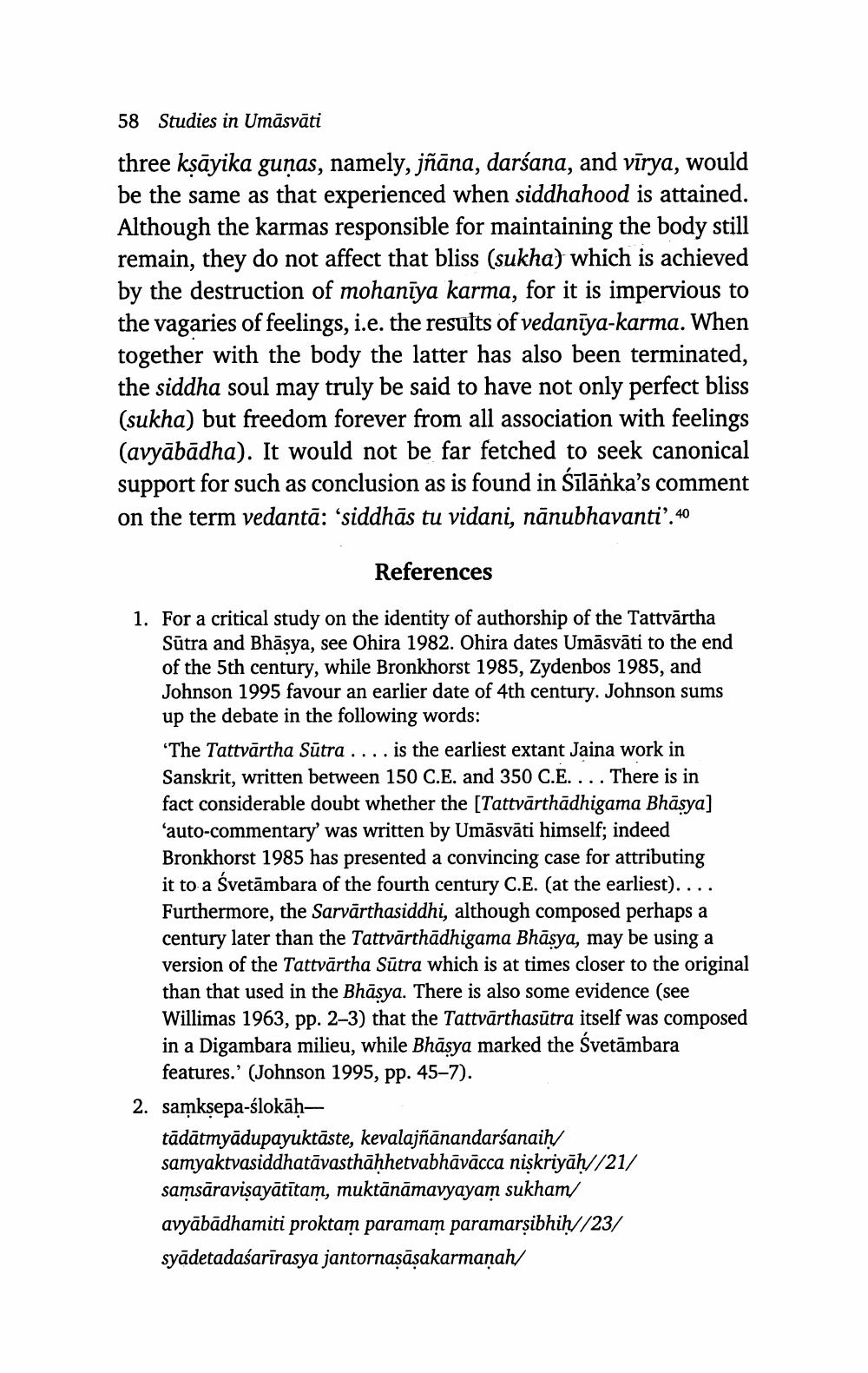________________
58 Studies in Umāsvāti
three kṣāyika gunas, namely, jñāna, darśana, and vīrya, would be the same as that experienced when siddhahood is attained. Although the karmas responsible for maintaining the body still remain, they do not affect that bliss (sukha) which is achieved by the destruction of mohaniya karma, for it is impervious to the vagaries of feelings, i.e. the results of vedaniya-karma. When together with the body the latter has also been terminated, the siddha soul may truly be said to have not only perfect bliss (sukha) but freedom forever from all association with feelings (avyābādha). It would not be far fetched to seek canonical support for such as conclusion as is found in Sīlānka's comment on the term vedantā: ‘siddhās tu vidani, nānubhavanti'.40
References
1. For a critical study on the identity of authorship of the Tattvārtha Sūtra and Bhāṣya, see Ohira 1982. Ohira dates Umāsvāti to the end of the 5th century, while Bronkhorst 1985, Zydenbos 1985, and Johnson 1995 favour an earlier date of 4th century. Johnson sums up the debate in the following words:
'The Tattvärtha Sūtra .... is the earliest extant Jaina work in Sanskrit, written between 150 C.E. and 350 C.E. . . . There is in fact considerable doubt whether the [Tattvärthādhigama Bhāṣya] 'auto-commentary' was written by Umäsvāti himself; indeed Bronkhorst 1985 has presented a convincing case for attributing it to a Śvetāmbara of the fourth century C.E. (at the earliest).... Furthermore, the Sarvārthasiddhi, although composed perhaps a century later than the Tattvärthadhigama Bhāṣya, may be using a version of the Tattvärtha Sūtra which is at times closer to the original than that used in the Bhāṣya. There is also some evidence (see Willimas 1963, pp. 2-3) that the Tattvärthasūtra itself was composed in a Digambara milieu, while Bhasya marked the Svetambara features.' (Johnson 1995, pp. 45-7).
2. samkṣepa-ślokāḥ—
tādātmyādupayuktāste, kevalajñānandarśanaiḥ/
samyaktvasiddhatāvasthāḥhetvabhāvācca niṣkriyāḥ//21/ samsäraviṣayātītam, muktānāmavyayam sukham/
avyābādhamiti proktam paramam paramarṣibhiḥ//23/ syadetadaśarīrasya jantornaṣāṣakarmaṇah/




